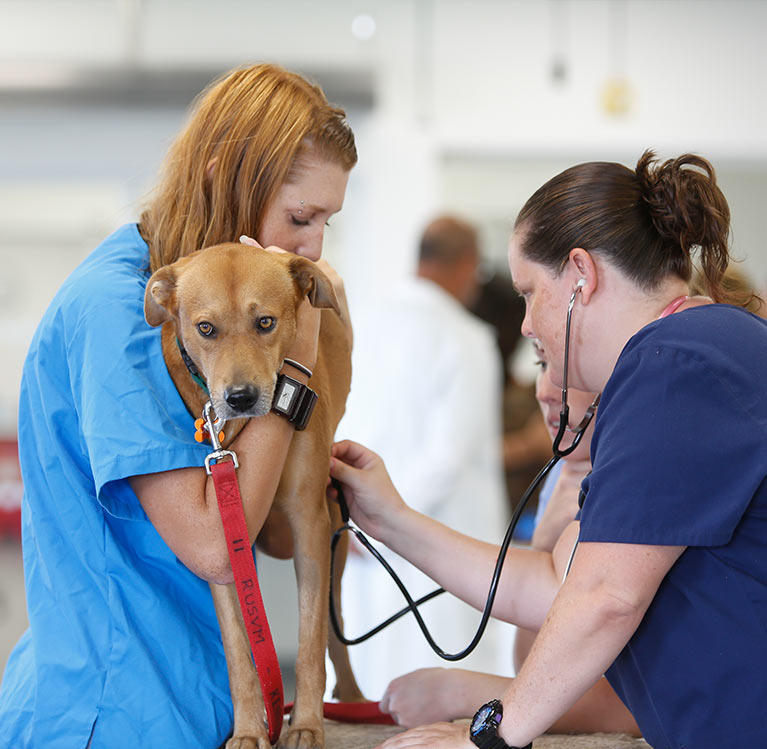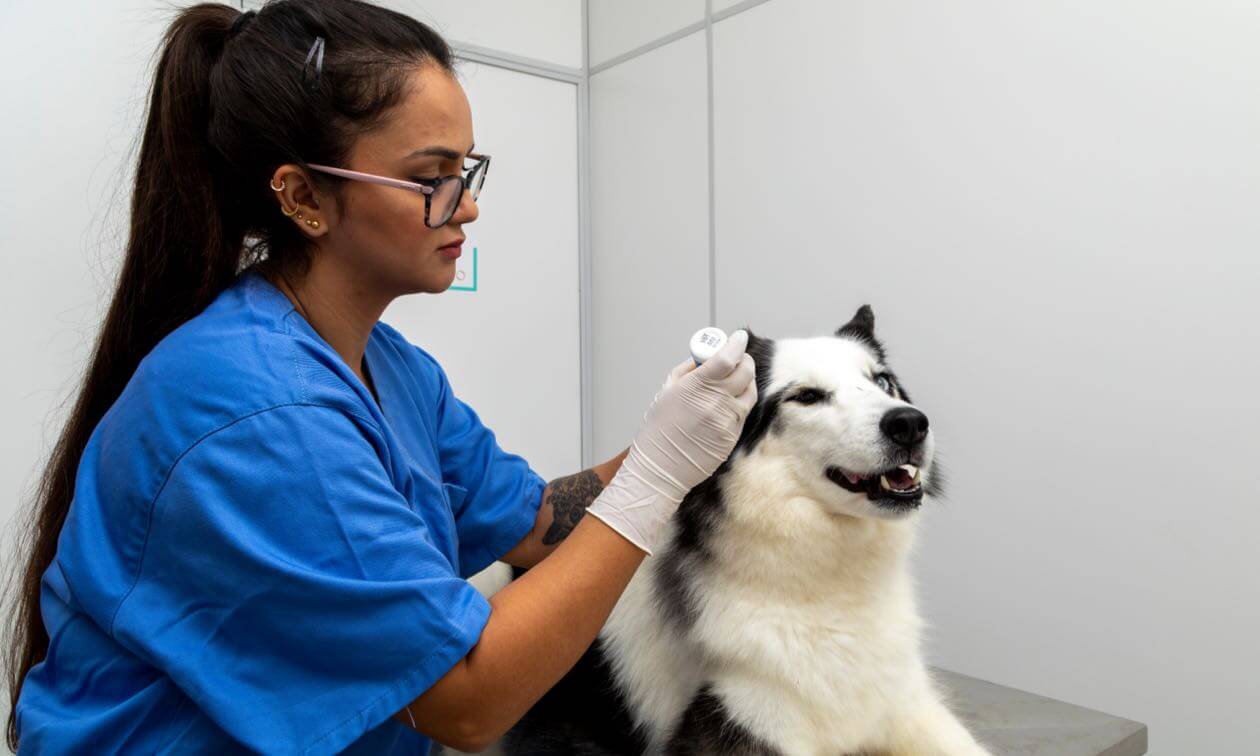Inoculation Standards From Your Relied On Veterinarian
Vaccination standards provided by your trusted vet play a crucial function in protecting your pet's wellness and well-being. Core vaccines are basic for all animals, while non-core vaccines can be tailored to particular lifestyles and ecological exposures. Comprehending the nuances of inoculation routines, which begin as very early as six to 8 weeks, is vital for ideal defense. Furthermore, resolving typical mistaken beliefs surrounding vaccines can further improve pet owners' confidence in these safety nets. As we discover these critical facets, it becomes progressively clear why routine consultations with your vet are indispensable for notified decision-making.

Importance of Vaccinations
Inoculations play a critical duty in protecting family pets against a variety of preventable diseases. By boosting the immune system to acknowledge and battle details microorganisms, vaccines dramatically lower the incidence of transmittable conditions that can impact an animal's wellness and longevity. Not only do vaccinations secure individual animals, however they likewise add to herd immunity, thus reducing the total frequency of diseases in the animal populace.
Prompt inoculations help to minimize the spread of diseases such as rabies, parvovirus, and distemper, which can have serious repercussions for both humans and pets. Additionally, vaccinations are commonly a need for boarding centers, brushing services, and canine parks, making them essential for those who desire to mingle their pets.

Core Vaccinations for Pet Dogs
While the details inoculation needs of animals can vary based upon private elements, core injections are widely recommended to safeguard versus the most common and serious diseases (Veterinarian Enterprise). Core vaccines are those deemed essential for all pet dogs, no matter their lifestyle or geographical place, as they safeguard against potentially deadly and extremely contagious diseases
For pet dogs, the core vaccines consist of those for canine distemper, parvovirus, adenovirus (hepatitis), and rabies. Canine distemper is a viral disease that influences the breathing, gastrointestinal, and nerves. Parvovirus is recognized for triggering severe intestinal disease, particularly in pups. Adenovirus can result in liver illness, while rabies is a zoonotic illness that positions a risk to both family pets and human beings.
In pet cats, core vaccines include feline panleukopenia, feline calicivirus, feline herpesvirus (rhinotracheitis), and rabies. Feline panleukopenia is a very contagious viral illness that impacts the body immune system and intestines. Calicivirus and herpesvirus are major factors to upper respiratory system infections in pet cats, while rabies continues to be a vital concern for public health.
Seek advice from your veterinarian to ensure your animals get their core inoculations on timetable.
Non-Core Vaccines Explained
Non-core injections are customized to resolve specific dangers associated with an animal's lifestyle, exposure, and setting to particular illness. Unlike core injections, which are globally recommended for all pet dogs, non-core vaccinations are considered based upon individual situations. These injections are specifically crucial for animals that may come across special microorganisms due to their geographical area, travel behaviors, or tasks.
Examples of non-core injections include those for Bordetella bronchiseptica, which is connected to kennel cough, and Lyme condition, brought on by ticks. Family pets that regularly interact with other pets, such as those in boarding facilities, pet parks, or brushing settings, may take advantage of Bordetella vaccination. Similarly, if you live in a location where Lyme disease is widespread, vaccinating against this illness can be a prudent option for This Site outdoor-loving canines.
Other non-core vaccinations may include those for leptospirosis, canine influenza, and feline leukemia, relying on the particular risk elements existing. It is crucial to have a thorough conversation with your vet about your family pet's way of life and the prospective demand for these vaccines, guaranteeing a customized vaccination method that finest secures your hairy pal.
Inoculation Set Up Review

As animals develop, it is very important to stick to the suggested booster inoculations. Pet Health Checkup. For adult animals, core vaccines are generally provided each to three years, depending on the certain vaccination and neighborhood laws. Non-core injections might be recommended based on way of living factors and local disease prevalence, necessitating a customized approach
Normal vet examinations are essential for updating vaccination timetables. Your vet can Veterinarian Enterprise offer assistance on one of the most suitable booster shots for your pet dog, considering age, health condition, and ecological threats. By staying aggressive and informed, pet owners can ensure their hairy companions receive effective and timely inoculations, thereby guarding their health and wellness throughout their lives.
Common Misconceptions Concerning Vaccines
Misunderstandings regarding pet vaccinations can cause complication and reluctance among pet dog proprietors relating to the immunization procedure. One widespread misconception is that vaccines are unneeded for indoor family pets. While it's real that interior pet dogs face lower threats, they are not entirely unsusceptible to conditions, as pathogens can be introduced through numerous means, including human clothes and other animals.
One more false impression is that vaccines can cause the illness they intend to avoid. In truth, most injections have inactivated or attenuated virus, which can not cause disease in healthy pets. Some family pet proprietors also believe that their family pets must not be immunized if they are already healthy; however, inoculations are an aggressive measure that aids prevent the start of ailment.
Additionally, many pet dog proprietors fear that vaccines will certainly cause long-lasting health problems. While negative effects can occur, they are short-lived and normally mild. The advantages of vaccination-- protecting pet dogs from potentially dangerous conditions-- much outweigh the dangers. Understanding these typical myths is critical for accountable pet ownership and ensuring the wellness and safety of your hairy friends. Constantly consult your veterinarian for precise details customized to your family pet's specific requirements.
Final Thought
In summary, adherence to inoculation standards is vital for making certain the wellness and long life of animals. Dispelling common misconceptions surrounding vaccinations better strengthens the relevance of notified decision-making in family pet care.
Not just do inoculations secure private pets, but they additionally contribute to herd immunity, therefore minimizing the general occurrence of diseases in the family pet population.
Misconceptions about pet dog vaccinations can lead to complication and unwillingness amongst animal proprietors relating to the immunization process. While it's real that Visit Website indoor family pets face lower threats, they are not totally immune to conditions, as pathogens can be presented via various methods, including human apparel and other pet dogs.
Some animal proprietors additionally believe that their family pets should not be vaccinated if they are already healthy and balanced; however, inoculations are a proactive measure that aids avoid the beginning of illness.
The benefits of vaccination-- protecting animals from possibly serious conditions-- far exceed the dangers.